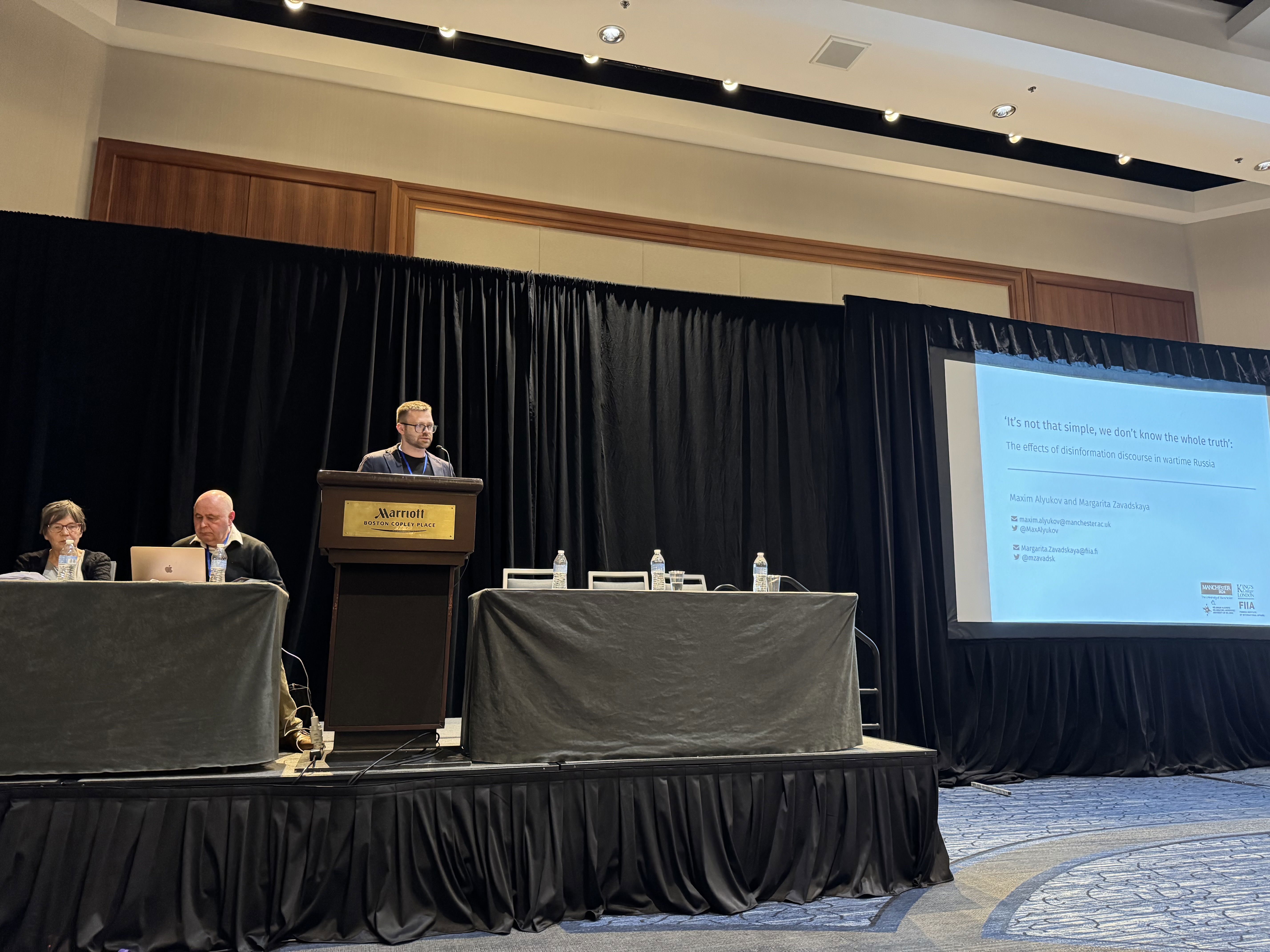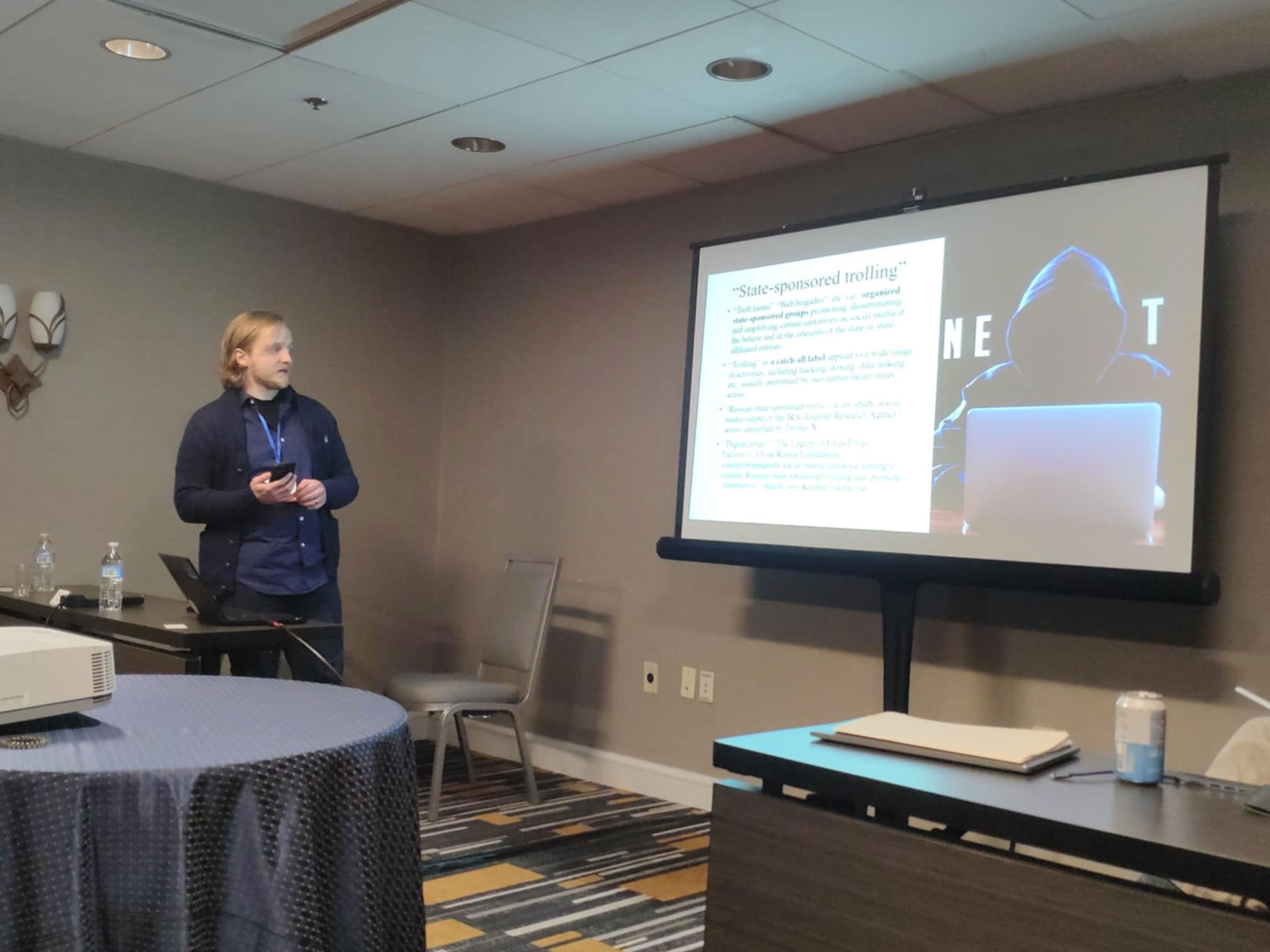(Mis)Translating Deceit Project Members at 2024 ASEEES Annual Convention
Vera Tolz, Stephen Hutchings, Maxim Alyukov and Maksim Markelov presented at this year's Association for Slavic, East-European, and Eurasian Studies Convention in Boston (November 21st - November 24th 2024).

Vera and Maxim participated in our project panel, chaired by Stephen, titled "Disinformation and the Ukraine War: Historical and Cross-Cultural Approaches". You can read the description of the panel below.
"Russia’s full-scale invasion of Ukraine was accompanied by an unprecedented campaign of state propaganda and disinformation, the West’s response to which has resulted in an intense battle of narratives, many of which have long, complex histories, and in Russia’s extensive and dynamic mirroring of allegations against it. This raises wider questions about the significance of shifts in how the meanings of both terms (propaganda and disinformation) have been reinterpreted over time, contested across lingua-cultural and geopolitical environments, and reshaped by their discursive encounters with liberal democratic counter-disinformation measures. Linked to these shifts is a parallel process in which 'disinformation narratives' themselves are adapted for specific cultural settings and time periods and construed differently by various target audiences. Focusing primarily on the Soviet and Russian contexts, the panel will spell out the implications for approaches to the Ukraine war, and to disinformation and state propaganda more generally".

Maksim presented a paper titled, "Strategic Interference: The Evolution of Russian State-Sponsored Trolling from the Annexation of Crimea to the Full-Scale Invasion of Ukraine" in the panel "Discursive Strategies for Mediating War, Propaganda, and Rebellion during Russia's Full-Scale Invasion of Ukraine". You can read the abstract for his paper below.
"Russia’s state-sponsored "trolls" have gained notoriety for their attempts to interfere with political discourse on social media in the U.S. and Western countries. This issue has attracted attention through scholarly research, official government investigations such as the Mueller report, and extensive media coverage, collectively raising concerns about the potential influence of these actors on social media discourse. Yevgeny Prigozhin, the former head of Russia's 'troll factory' (the Internet Research Agency - IRA), has publicly acknowledged the organization's ongoing efforts to meddle in U.S. electoral processes, although the impact of these endeavors remains a subject of debate.
This paper presents findings from a bilingual diachronic corpus analysis of the language and discourse practices employed by Russian "state trolls" (as identified by Twitter/X) on social media from the IRA and beyond during periods of conflict and socio-political turbulence, including the annexation of Crimea, the 2016 U.S. Election, the COVID pandemic, and Russia's full-scale invasion of Ukraine. The study examines the interplay between socio-political contexts and linguistic practices, shedding light on ideological stances, historical justifications, and power dynamics through the lens of language choices and usage. Employing a hybrid methodological approach, the paper combines diachronic quantitative computational lexical analysis with qualitative discourse analysis to explore publicly available "Russian troll" Twitter/X datasets from 2014 to 2020. It also offers a speculative analysis of post-2022 trolling efforts based on earlier findings".